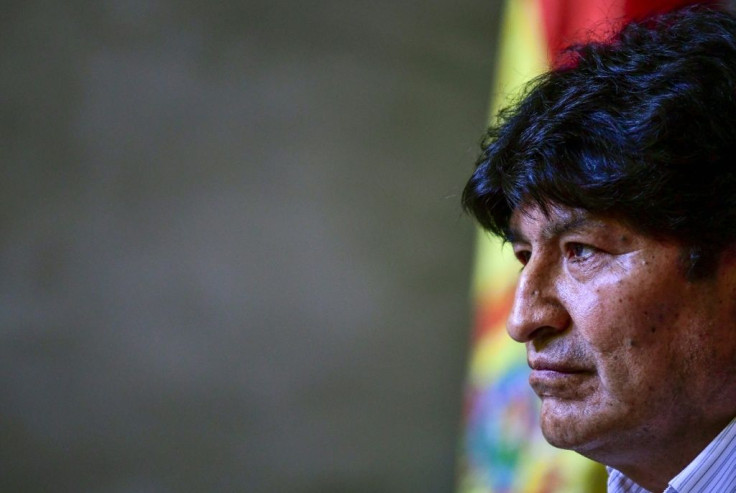Bolivia Contacts ICC Over Ex-president Morales 'Crimes'

Bolivia's government announced on Friday it has contacted the International Criminal Court to denounce former president Evo Morales for "crimes against humanity" over last month's mass roadblock movement.
The government accused Morales of "terrorism and genocide" over the 12-day campaign that saw hospitals complain they were unable to receive urgent medical supplies needed to treat coronavirus patients.
Bolivia's state prosecutor "is at the ICC in The Hague filing a complaint for #crimesagainsthumanity against Evo Morales and others," said interim President Jeanine Anez on Twitter.
Technically states submit communications to the ICC about alleged serious crimes rather than filing complaints. Afterwards the court decides whether to investigate.
Conservative Anez said that the communication was "due to the siege of the cities that caused more than 40 deaths from lack of oxygen," which could not be delivered to hospitals.
Morales denied any wrongdoing and said the allegations were "a smoke screen aimed at distracting the Bolivian people's attention from the economic, health and humanitarian catastrophe" in their country" ahead of a presidential election in October.
Morales, who is a hugely influential figure in Bolivia even though he currently lives in exile in Argentina after 14 years in power, had encouraged his supporters to ramp up the pressure on authorities in a bid to prevent a postponement of the election.
The election was originally due to take place in May but was postponed until September 6 and then October 18.
While the protests failed to force the poll to take place in September, Bolivia's main trade union called off the roadblocks after the government approved a law preventing a further postponement beyond the October date.
But the 12 days of social action involving 142 roadblocks across the country severely limited the ability of trucks carrying oxygen to reach hospitals treating coronavirus patients.
Bolivia has recorded more than 118,000 cases and almost 5,300 deaths from the coronavirus.
Neither Morales nor his Movement for Socialism (MAS) party have commented on Anez's claim.
It is not the first criminal proceeding brought by the government against the 60-year-old Morales -- Bolivia's first ever indigenous president who was in power from 2006-19.
Authorities have also accused Morales of two intimate relationships with minors, including one in which he supposedly fathered a child with a girl who was 15 when she became pregnant.
The government also accused Morales of "sedition and terrorism" over the civil unrest that broke out following his resignation and flight into exile in November.
MAS has dismissed those accusations as a pre-election tactic.
Luis Arce, the MAS candidate for president, has led polls since he was nominated in January but in the latest he was neck-and-neck with centrist former president Carlos Mesa.
Morales has been barred from standing in the elections, even as a senator.
He fled into exile following three weeks of protests against his controversial re-election to an unconstitutional fourth term last October.
An Organization of American States audit found evidence of fraud in the election, after which Morales resigned and left the country.
The public prosecutor's office said its head Jose Maria Cabrera met ICC chief prosecutor Fatou Bensouda in The Hague on Friday.
© Copyright AFP {{Year}}. All rights reserved.





















